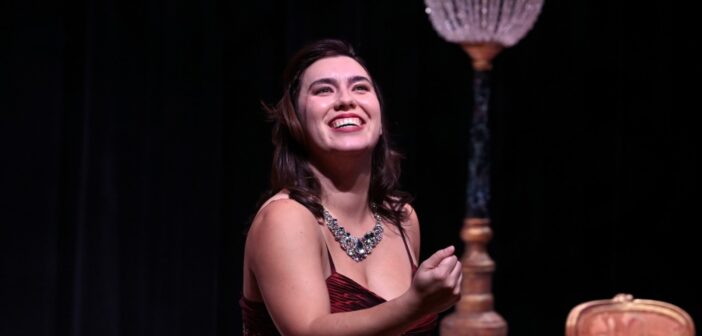As is their tradition, Toronto Operetta Theatre livens up the in-between-Christmas-to-New Year lull with an annual production of a classic, golden age operetta. This year, it’s Hungarian composer Imre Kálmán’s Countess Maritza with its non-stop succession of great tunes and authentic czardas-infused rhythms. TOT can always be relied on to present some of the best young Canadian talent and this was certainly no exception at Dec. 29th’s opening performance.
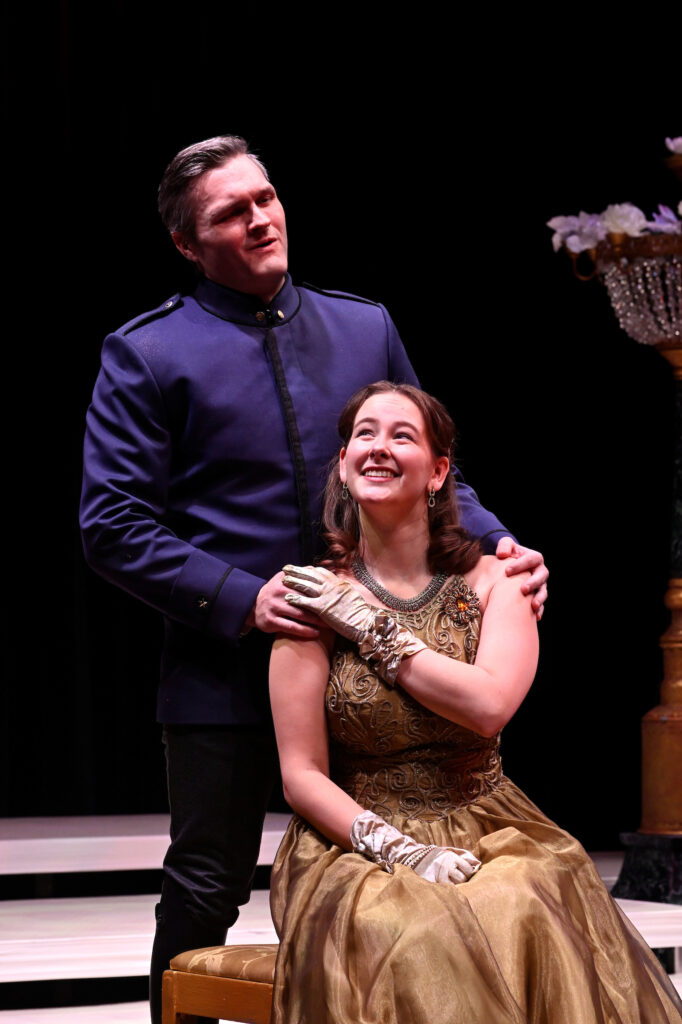
Scott Rumble (Tassilo) & Patricia Wrigglesworth (Lisa) in TOT’s Countess Maritza. Photo: Gary Beechey
A Maritza that moves
TOT’s General Director, Guillermo Silva-Marin is also the show’s stage director and he does a lot with comparatively modest means. Maritza’s country mansion is appropriately decorated with four crystal-encrusted, golden torchieres and the chorus women wear elegant, colourful gowns. However, other than a rear, raised platform for entrances and exits, the stage is mostly bare. But within this framework, Silva-Marin coaxes his small cast to move convincingly with great verve and energy. He knows just how much to give non-trained dancers to help them look polished without being overly ambitious.
Central to the production’s success is the small pick-up orchestra under the baton of Derek Bate. He is a well-practiced operetta conductor with a good sense of the push and pull so important in this repertoire, while avoiding getting overly sentimental. The players were quick to intuit Bate’s sprightly tempo shifts in the multitude of dance-based musical numbers. Concertmaster Mark Skazinetsky was especially impressive in the beautiful violin solos that weave through several of the numbers.

Holly Chaplin in the title role of Toronto Operetta Theatre’s Countess Maritza. Photo: Gary Beechey
Commanding Maritza
In the title role, soprano Holly Chaplin convinces as the strong woman at the centre of everyone’s orbit. Maritza is a wealthy landowner only too aware of the type of gold-digging men attracted to her money. Chaplin projected strength of character both physically and vocally. Her ample, lyric tone is secure throughout its range, including some very impressive top notes. She moves well and delivers the copious spoken dialogue with wit and point. Only in some of the more quickly moving patter singing might one ask for crisper diction.
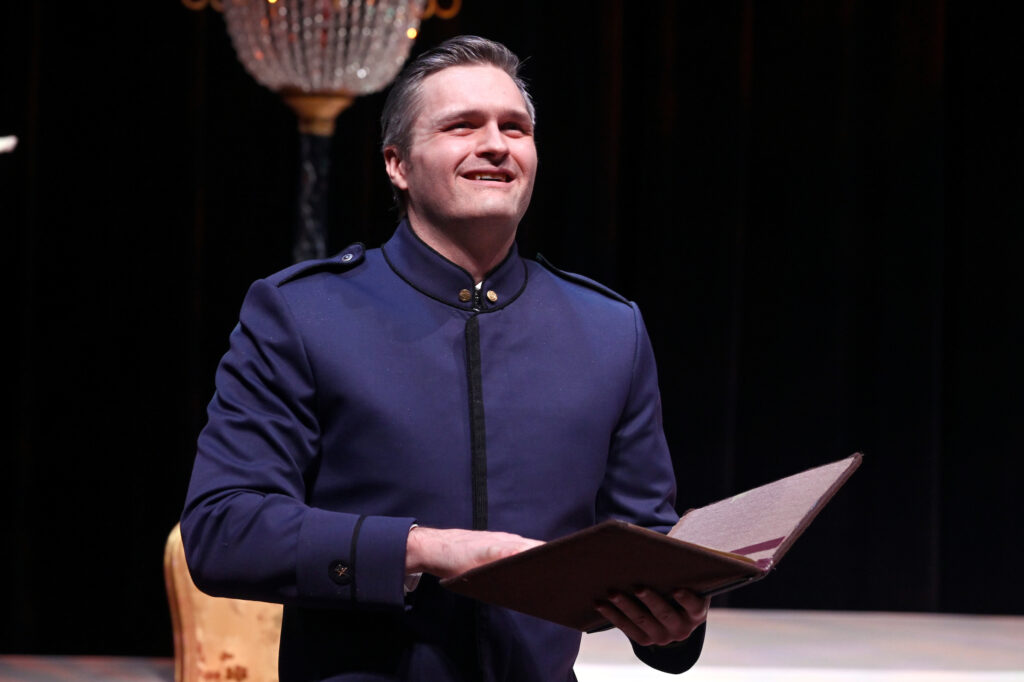
Scott Rumble (Tassilo) in TOT’s Countess Maritza. Photo: Gary Beechey
As her eventual paramour, initially undercover as Maritza’s estate manager, tenor Scott Rumble offered thrilling sound and a warm, romantic stage presence. His Count Tassilo is gifted with some of the work’s most famous, enduring melodies which Rumble delivered subtly, with a gorgeous smooth legato line. He was also tasked with the show’s most ambitious dance bit. A knee and heel-slapping czardas saw him hop and spin around the stage with impressive force. Rumble is undoubtedly one of the most impressive Canadian tenors singing today.
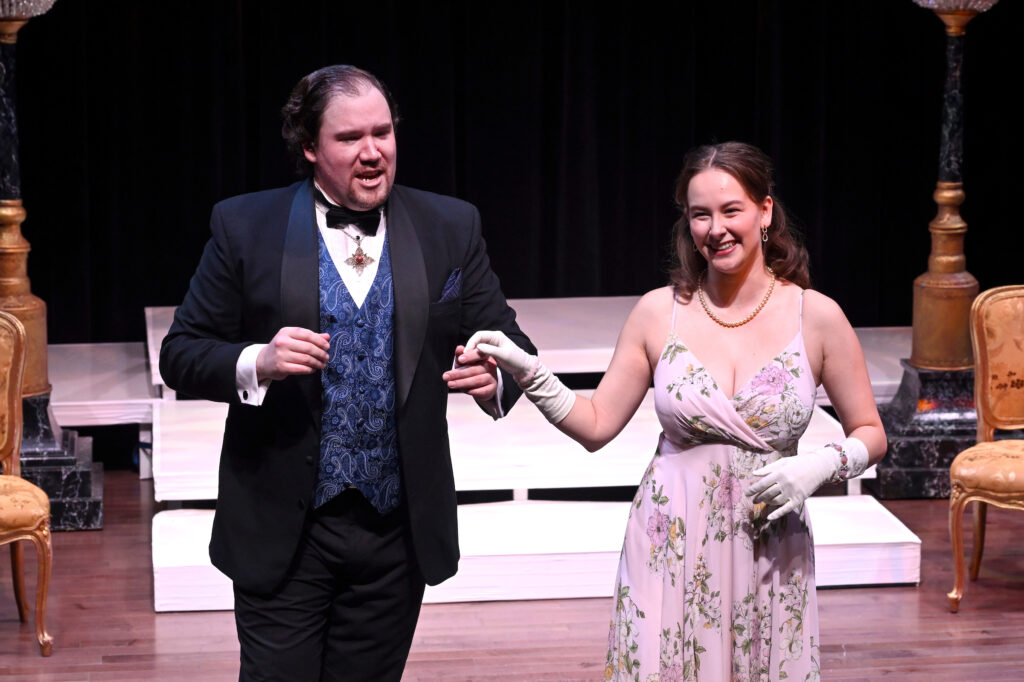
Joshua Clemenger (Baron Zsuspán) & Patricia Wrigglesworth (Lisa) in TOT’s Countess Maritza. Photo: Gary Beechey
A real discovery was soprano Patricia Wrigglesworth as Tassilo’s sister, Lisa. Belying the fact that she is still a student at McGill’s Schulich School of Music, she graced the stage with a confident presence and creamy, consistent vocalism. Knowing how to project appropriate body language and facial expressions is not always a given for young artists, but Wrigglesworth mastered all of that and more. It will be exciting to watch her career progress from academia into the wider artistic world.
A winning comic pair
Tenor Joshua Clemenger is well-suited to comic tenor roles like Baron Zsuspán, erstwhile pig farmer, Maritza suitor and eventual match for Lisa. Clemenger understands how to sing in a conversational style so that all the text is clear while not neglecting the musical line. He and Wrigglesworth are a winning pair as the traditional operetta ‘second couple’ so often given the catchiest, most toe-tapping numbers.
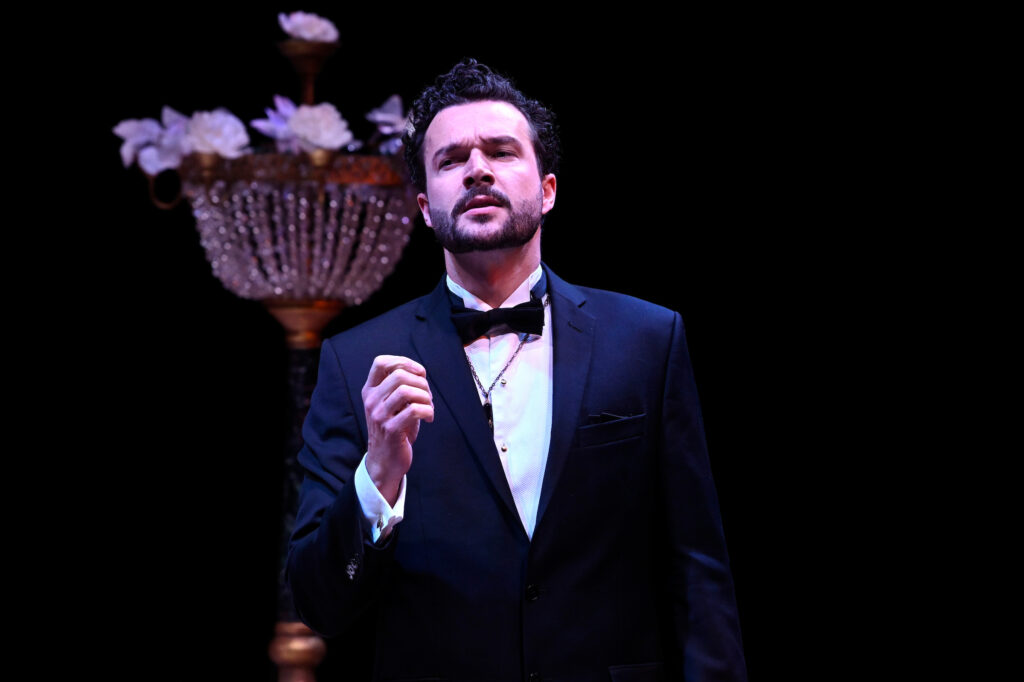
Sebastien Belcourt (Prince Popelescu) in TOT’s Countess Maritza. Photo: Gary Beechey
Baritone Sebastien Belcourt projected entitled disappointment as another of Maritza’s suitors, Prince Popolescu, and is always a welcome, elegant presence in TOT productions. In another operetta convention, the deus ex machina is often an elderly, rich relative who swoops in to save the day. Here we had mezzo-soprano Meghan Symon as an amusing, emotionally stunted Princess Bozena. Her sidekick and feelings-whisperer was Austin Larusson. As Penizek, he milks his several Shakespeare references to the hilt, complete with act and verse citations.
The Central European operetta tradition is something to be cherished. However, this task must be increasingly difficult as older immigrant generations pass on, and with it, their love for these great works. The sold-out crowd at TOT’s opening performance demonstrated the genre’s continued appeal. This bodes well for the ongoing success of the 40-year-old company’s mission.
Toronto Operetta Theatre’s Countess Maritza continues at Toronto’s St. Lawrence Centre for the Arts on Jan. 3 and 4.

